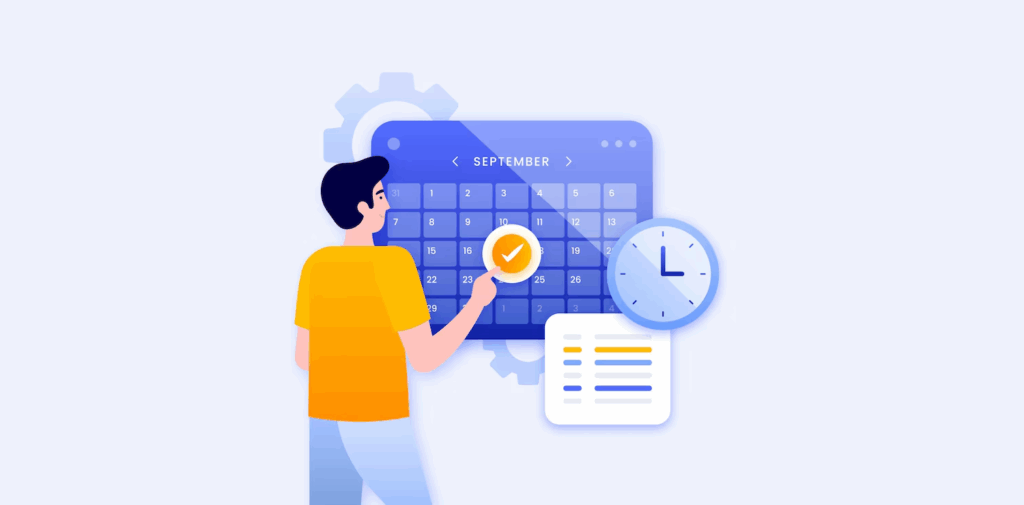In today’s competitive world, many young Indians dream of securing a government job or cracking top-level competitive exams like UPSC, SSC, banking exams, state services, or other public sector jobs. However, not everyone has the luxury to leave their job and prepare full-time. For many, financial responsibilities or family situations make it necessary to work while preparing. Balancing a job with competitive exam preparation may seem difficult, but with the right approach and mindset, it is absolutely possible.
In this article, we’ll guide you with easy and practical tips on how to manage both work and studies effectively. Whether you are working in the private sector or a contractual role in the government, these time management tips will help you create a routine that suits your lifestyle without compromising your preparation. This guide is written keeping in mind the Indian audience and the challenges faced by working aspirants.
Set Clear Goals for your competitive exams
The first and most important step is to clearly understand the exam you are targeting. Every competitive exam in India has a different pattern, syllabus, and timeline. Before you dive into preparation, gather complete information about your exam – the syllabus, number of papers, cut-off trends, difficulty level, and previous year question papers.
Once you understand the requirements, set your goal. For example, if you are preparing for SSC CGL or SBI PO, your approach will be different compared to someone preparing for UPSC or state PSC exams. Set both short-term and long-term goals. A short-term goal could be completing the Quantitative Aptitude section in 30 days. A long-term goal could be to clear Prelims in the next attempt.
When you have clarity, you can plan your study hours more efficiently. This reduces confusion and gives your preparation a strong direction, which is necessary when you already have a job to handle.

Create a Realistic and Customized Timetable
Time is limited for working professionals, so every minute counts. You need to create a daily and weekly timetable that is realistic and fits around your job timings. Don’t copy others’ routines. Customize it according to your own schedule.
If you work from 9 to 6, plan your study time before and after work. For example, early mornings from 5:30 to 7:00 AM can be used for revision or concept learning. Evenings after work (say 8:00 to 10:30 PM) can be used for practicing questions or reading current affairs. On weekends, you can increase your study hours and revise the entire week’s topics.
While creating a timetable, keep it flexible. Don’t overfill it with too many tasks. Leave some buffer time for office emergencies, social functions, or health issues. It’s okay to adjust the routine occasionally, as long as you are consistent overall.
Make Use of Small Time Slots
One major mistake that working aspirants make is waiting for long free hours to study. But such long hours rarely come, especially with a job. The smart way is to use small time slots during the day. Even 15-30 minutes can be productive if used wisely.
Utilize travel time by listening to audio lectures or reading notes on your phone. During lunch breaks or tea time at work, revise vocabulary or read newspapers like The Hindu or Indian Express. Install apps like Unacademy, BYJU’S, Gradeup, or Testbook to take quizzes on the go.
By using these micro time slots, you can easily add 1–2 extra hours of study time to your daily routine without disturbing your job.

Stay Focused and Avoid Distractions
When you are managing both job and studies, your time and energy are already limited. So, it becomes very important to stay focused and avoid wasting time on distractions. Social media, binge-watching, and unnecessary phone calls can eat up your study time without you even realizing it.
Limit your screen time. Set fixed timings for using social media or watching shows. Use apps like Forest or Digital Wellbeing to track your phone usage. Keep your study space clean and separate from your work desk if you are working from home.
Train your mind to stay focused for at least 30–60 minutes at a stretch. Use simple techniques like Pomodoro (25 minutes of study, 5 minutes break) to improve concentration. Also, learn to say no to events and activities that don’t align with your goals.
Choose the Right Study Material and Stick to It
Another common mistake aspirants make is jumping from one book or course to another. This wastes time and causes confusion. As a working professional, you need to choose limited and reliable study material and revise it again and again.
For example, for UPSC prelims, stick to NCERTs, standard books like Laxmikant, Spectrum, and daily current affairs. For bank exams, follow standard books like RS Aggarwal for Quant, Wren & Martin for English, and practice mock tests regularly.
You don’t need to complete every book or course available in the market. Quality matters more than quantity. Focus on understanding concepts and practicing regularly instead of just collecting PDFs and notes.

Take Mock Tests and Evaluate Your Progress
Many aspirants skip mock tests thinking they can take them later. But mock tests are the best way to check your progress, especially when your time is limited. Start taking topic-wise or section-wise tests from the beginning of your preparation.
Reserve one day every week (like Sunday) to take a full-length mock test. After the test, spend time analyzing your mistakes and improving weak areas. Use online platforms to take these tests and compare your performance with others.
Regular testing also helps you build exam temperament and manage time pressure, which is crucial for exams like IBPS PO, SSC CGL, or UPSC where time management during the paper is a key factor.
Take Care of Your Health and Stay Motivated
Working and studying at the same time can be physically and mentally exhausting. It’s important to take care of your health, both physical and emotional. Don’t sacrifice your sleep. A minimum of 6 hours of good sleep is essential for retaining information and staying alert.
Eat nutritious food and stay hydrated. Try to include some light physical activity in your daily routine, like stretching, yoga, or walking. It helps reduce stress and increases energy levels.
Stay in touch with other aspirants or join online forums to stay motivated. Watch success stories of working candidates who cracked tough exams. Their journey can inspire you to stay committed to your goal.
Avoid comparing your journey with full-time aspirants. Your situation is different, and your strategy should also be different. What matters is consistency, not the number of hours you study.
Final Thoughts: Your Effort Will Pay Off
Balancing a job while preparing for competitive exams is not easy, but it’s also not impossible. Many Indians have done it before, and you can do it too. The key lies in planning smartly, being consistent, and staying mentally strong. Every hour you invest today, every test you take, every chapter you revise brings you one step closer to your dream job.
Believe in yourself, stick to your plan, and don’t let temporary obstacles stop you. With discipline, focus, and a strong reason behind your preparation, you will find the strength to manage both your job and your studies.
So start today, make your own strategy, and take control of your time. Your hard work will definitely lead you to success. All the best!




